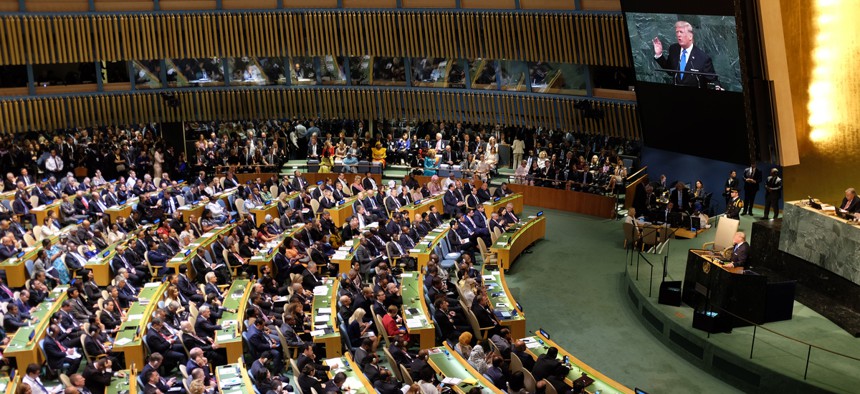
Donald Trump speaks at the U.N. General Assembly. a katz / Shutterstock.com
Meetings Create a Commodity No Organization Can Function Without
There’s magic in gathering.
You might laugh at the notion that the UN general assembly has anything to teach the business world. The “world’s biggest meeting” can also, with its fetish for arcane procedures, interminable declarations, and impenetrable jargon, seem like the world’s most dysfunctional one.
But what businesses sometimes miss about meetings is that they are not just tools for getting things done. Meetings signal status (who gets to go, who doesn’t). They create shared language and culture. They let people feel heard, so they can then go along with decisions they disagree with. They create shared responsibility—if you were at the meeting, you can’t claim you didn’t know.
Most of all, though, meetings create a commodity no organization can function without: trust.
It’s a modern paradox that, while we can now transmit megabytes of information in an eyeblink, our brains still absorb it at the glacial baud rate set by evolution. Unless (or until) we invent the neurological equivalent of broadband, you’ll still need other people to do much of the knowing for you, and so you must be able to trust them to get it right.
Trust relies, ironically, on the one type of information our technology doesn’t handle well. It’s the information encoded in smiles, frowns, gestures, postures, verbal tics, facial micro-expressions, even smells—all the friend-or-foe signals our big brains evolved aeons ago to send and receive, often without our even knowing it. Even in video calls, most of that data gets lost in transit.
So that’s what meetings are, above all: not decision-making bodies, but ancient data-transfer protocols for trust creation. And it’s why meetings at the UN, a body created specifically to try to forge trust out of distrust, are so important. Perhaps the way it holds them can even teach a thing or two to anyone who needs to bring warring tribes together.






